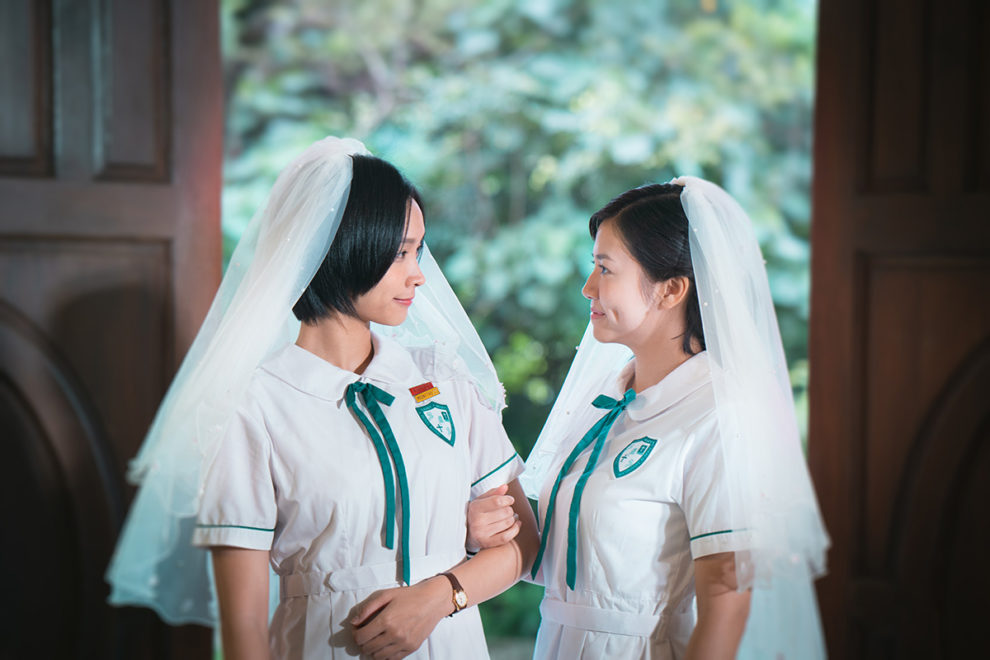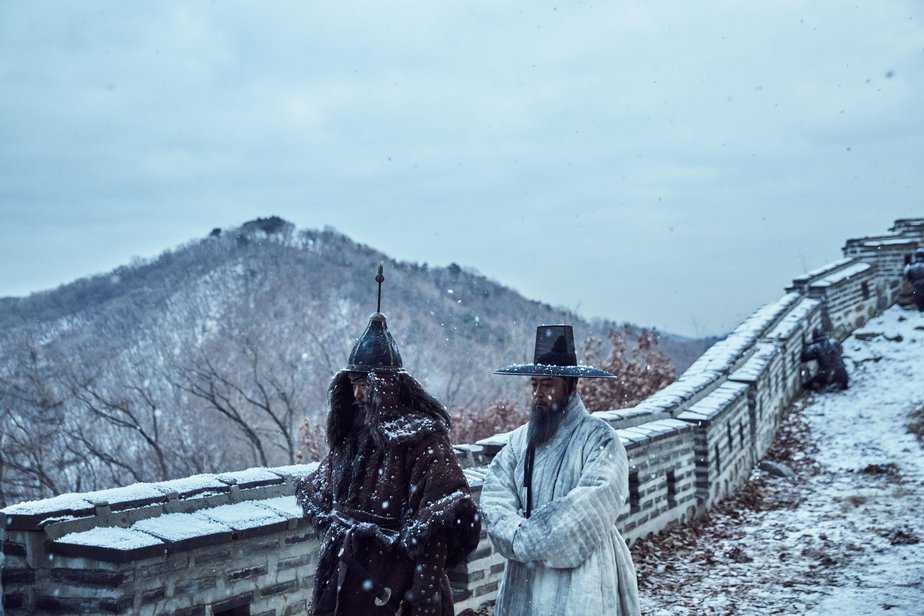The treatment of sapphic love in films could be an uncomfortable toss-up between tragedy and bliss, but “The First Girl I Loved” does neither of these. Co-directed by Candy Ng Wing-shan and Chiu Hoi Yeung, the entry to the 2021 Hong Kong Asian Film Festival and 2022 Osaka Asian Film Festival instead explores the liminal space between the two, where love simply evolves and is not punctuated by anything.
“The First Girl I Loved” is screening at Osaka Asian Film Festival

The film tells the story of Lee Wing Nam and Sylvia Lee Sum Yuet and how their romance blossoms in a Catholic all-girls school in Hong Kong during their youth, only to see its certitude challenged as they slowly enter the realm of adulthood. The hurdles to their love first come in the form of institutions, with restrictions and rules imposed by an educational system defined by dogma. Wing and Sylvia feel free and brash enough to steal kisses in public buses, but are more careful inside the school, their love kept as a clandestine secret from school authorities.
The film then goes on to tackle the role of the family, but in a surprisingly refreshing take as it obviates a predictable storyline where the family is often portrayed as homophobic. On the contrary, both of their families are relatively supportive, with this support portrayed realistically to a certain extent. The family's motivations are far from progressive, however, as the movie attempts to illustrate that beliefs and attitudes toward homosexuality are more often than not, a product of its time.
Ng, who did not only co-direct the film but also co-wrote the screenplay with Susan Sin Wing-Na, situates the storyline in very specific settings and periods in Hong Kong. The reference to a particular timeline in the city here then is not used only to establish and evoke nostalgia but also to mirror the dominant perspectives during that time.
These include the viewpoints of fathers who do not raise hell upon finding out that their daughters like each other, because as their reasoning goes, same-sex relationships could prevent unwanted pregnancies, adding that they see it just as another stage that adolescents go through, that of a passing identity crisis. It's a very simple and commonplace logic, a shade of reality that the movie recognizes and even makes more nuanced by including the factor of socioeconomic standing. Sylvia's father tells her that he's okay with his daughter liking girls, but it's just that it may cost her her academic scholarship, something they cannot afford to lose as they do not have a stable source of income. By providing a multilayered source of tension and difficulty, the film shows that the society's tolerance, but not acceptance, of same-sex love emanates not just from a negotiation of morals but from all-too-real considerations of survival and practicality.
First-time filmmakers Ng and Yeung make use of symbols to provide context. They highlight religious paraphernalia to show that religion could be both a cause of homophobia and a testament to the purity of love. The directors also use clocks and watches that do not work anymore, though it's a symbolism whose meaning and messaging are unfortunately too ambiguous to instill additonal emotional depth.
Hedwig Tam and Renci Yeung, who play Wing and Sylvia, respectively, give a convincing performance as girls lost in the ecstasy and inimitable force of first love and the unravelling that also comes with it. They exude a certain connection, even and especially in the quietest of scenes and moments.
The film's scoring and cinematography complement each other to convey the whimsical tones of youth, while the editing improves as the movie goes on to emphasize climactic scenes. The production design and the costume makes the milieu and the atmosphere of a conservative all-girls school stifling and freeing at the same time.
A crucial tool which the directors use here is that of the movie stinger, as it vivifies the psyche of the characters and the story's direction. Through this, one gets a bit more insight into how the film intends to show that even as institutional barriers such as religion and socioeconomic problems exist, the decision to love – or not to love – in a certain way is ultimately decided not by the society at large or by external factors, but by the very people involved in the journey of discovering one's identity.
“The First Girl I Loved” is a coming-of-age film which acutely confronts emotional gradations as well as the reality that growing up could mean growing, and loving, apart.
















